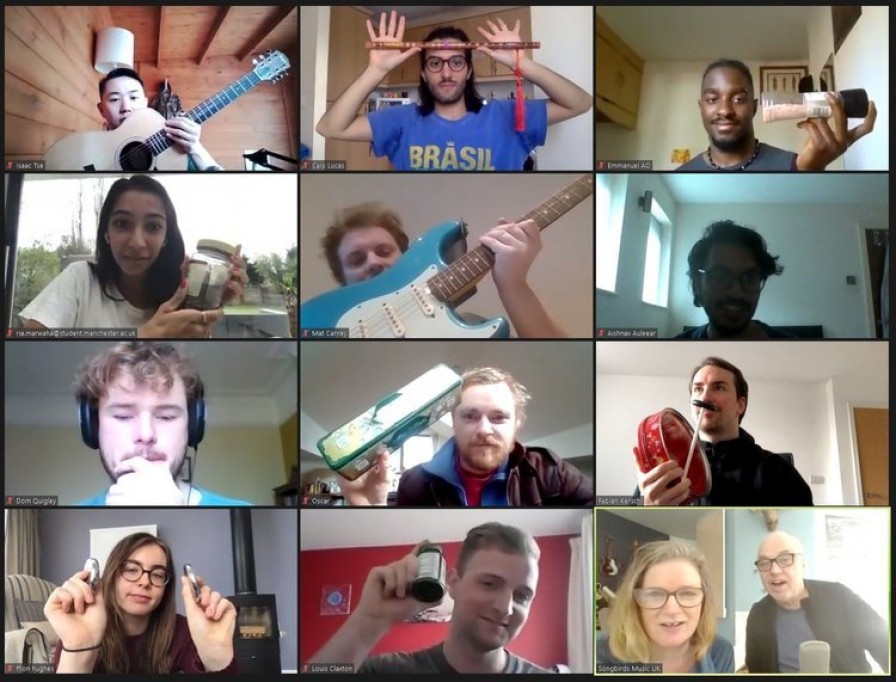SMUK annual PEP training with Medical Students: Exploring Music and Communication practice

We have been very busy working with a cohort of 4th year medical students at Manchester Medical School as part of an annual ongoing training partnership delivering PEP (Personal Excellence Pathway) modules in QEPEP Communicating through Music and Arts. Through the training, the medical students gain practical experience of using music as a communicative vehicle for expressive exchange between musicians, patients, families and staff. Students explore child centred approaches to communication and gain practical insights into the performance and communication techniques used by musicians as they work on the wards through observing weekly remote music sessions on Paediatric Critical Care as part of our flagship Sound Environments project
After observing the music sessions, the students wrote up their thoughts and reflections; highlighting key moments and also reflecting on how the experience has changed and informed their own medical practice:
‘Having the opportunity to watch the Songbirds in action was a great privilege which highlighted the therapeutic benefits in offering alternative therapies such as music.
The session portrayed beautifully how music can be used as a vessel for escapism in an extremely clinical and often stress inducing environment. The Songbirds team were able to create a safe interactive space even within the confines of Zoom and by establishing rapport and encouraging the participation of family members they enable a mutual, personalised experience. Seeing first-hand the positive reception of these young patients to music has broadened my perception of what treatment in hospital can entail and I will endeavour to treat my own patients in a more holistic manner in my future practice.’
‘Thank you for letting us sit in on that wonderful music session today. It was interesting to see how different children reacted to the music, and how that in turn fed back into the music that you were playing. For example, with one of the children, who was moving their tongue to make "la la la" sounds you adapted the music to make it easier for them to sing along, which I could tell they reacted to very positively. With another child the mother got involved in the singing, which also helped the child engage better with the music. I also enjoyed seeing how you two took cues from each other while making the music, to speed up or slow down, which made it even more enjoyable for the children listening.’

